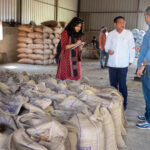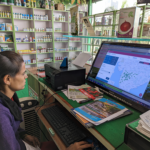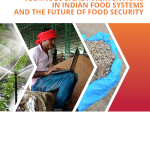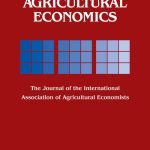Tag: Mathew Abraham

FPOs Would Get Boost from Centralized Database
India is betting big on farmer producer organizations (FPOs) to boost its agricultural sector and improve the livelihoods of smallholder farmers, but its efforts would be enhanced by the creation of a centralized system of tracking FPOs, according to the…

How Many FPOs Are There in India? How We Counted the Number of Farmer Producer Organizations
Farmer producer organizations (FPOs) have the potential to significantly aid smallholder agricultural development through the power of aggregation. In India, where most farms are smaller than a hectare, well-functioning FPOs can boost farm incomes through better market linkages and increased…

Report Explores Evidence on FPOs and Other Farm Aggregation Models
The average size of farms in developing countries of the world is 2 hectares or less. Smallholder farmers who rely on agriculture as their primary source of income often live in poverty. By joining together with other smallholders, farmers can…

Technology Is Key to Bolstering India’s Food System
As India’s population grows and the country continues to urbanize, it will need to produce greater amounts of diverse agricultural products. A new report from the Tata-Cornell Institute for Agriculture and Nutrition (TCI) contends that India can achieve a sustainable…

Asia’s Food Systems Transformation: How It Happened and What Comes Next
Not so long ago, famines were a recurrent feature in Asia, with many dying from chronic hunger and poverty. The continent’s swing from deficiency to self-sufficiency in food did not happen unaided; it was thanks to policy and technology interventions.…

Improving Public Sector Plant Breeding for the Future of Food Security
Public plant breeding programs play a central role in tackling local food security challenges around the world, but how can we be sure that they are operating effectively and optimally at the institutional level? In this blog series, the Feed…

Technological Interventions in Indian Food Systems and the Future of Food Security
Technological Interventions in Indian Food Systems and the Future of Food Security is available for download in PDF format. With India on track to become the world’s most populous country by 2030, agricultural technology will play a vital role in ensuring that the country meets...

FPOs or Bust: Farm Aggregation Review Finds Newer Models Are the Most Successful
As demand for high-value, diverse agricultural products rises throughout the developing world, smallholder farmers face pressure to either commercialize or exit the farm sector altogether. Farmers that can scale up their operations have a significant opportunity to improve their livelihoods.…

Food Systems Transformation in Asia – A Brief Economic History
Abstract Asia’s food systems have undergone rapid economic and socio-cultural transformations in the past 60 years. During the period, almost all the countries in the region eradicated famines and achieved food self-sufficiency and heterogeneous levels of poverty reduction. Food system transformation in Asian countries has...

Aggregation Models and Small Farm Commercialization – A Scoping Review of the Global Literature
Abstract Aggregation models where small farms jointly access credit, inputs, information, and product markets are not new to global agricultural systems. For over a century, agricultural cooperatives worldwide have tried rectifying small farm disadvantages in market access. In the last two decades, newer aggregation models...

